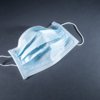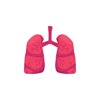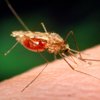Fritextsökning
Artiklar per år
Innehållstyper
-

Nocebo – the evil twin that makes you feel worse
The placebo effect is well known in healthcare, but not so its opposite: nocebo. “The effect is small, but it can have major repercussions,” says Uppsala researcher Charlotte Blease, co-author of a book on the phenomenon.
-

Nocebo – den onda tvillingen som får dig att må sämre
Placeboeffekten är väl känd inom vården – men det gäller inte dess motsats: nocebo. "Det är en liten effekt, men den kan få stora återverkningar", säger Uppsalaforskaren Charlotte Blease, medförfattare till en bok om fenomenet.
-

Study: Popular diabetes treatment is not associated with thyroid cancer
Concerns raised about an association between GLP-1 analogues, used to treat diabetes and obesity, and an increased risk of thyroid cancer are not supported by an extensive Scandinavian study.
-

Radioactive tracer to measure effect of drug towards Crohn’s disease
A radioactive tracer developed by Astra Zeneca and the Karolinska Institutet may play a major role for patients with Crohn's disease. That is the belief of Maria Belvisi at AstraZeneca.
-

Venom from the deathstalker carries radiopharmaceuticals to the brain
In order to target cancerous brain tumours with radionuclides, the problematic blood-brain barrier must first be crossed. Life Science Sweden has visited a KI researcher who is trialling an unusual approach ‒ using scorpion venom.
-

Failed to read the fine print – lost his life’s work
A celebrated CEO and co-founder of a pioneering lab company one moment – the next, fired, kicked out and written out of the company’s history. This is the story of a Swedish entrepreneur who was going to raise US venture capital to strengthen his company
-

Ingrid Lönnstedt: Demystification of the power of a scientific study
”You surely do realize that even the smallest changes in study assumptions may influence the estimated sample size needed. And how is it even possible to guess the magnitude of the treatment effect before performing the study?” writes Ingrid Lönnstedt
-

Suing the company – for NOT developing a new HIV drug
Was Gilead putting a steady flow of profits from its cash cow ahead of developing a new and safer drug? According to a large number of US HIV patients in a legal case with an unusual twist, the answer is yes.
-

Unexpected study results on testosterone – no reduction in fracture risk
Testosterone treatment is known to increase bone density and bone quality. However, a study now suggests that supplementation with the male sex hormone does not reduce the risk of fractures, but rather increases it. The researchers behind the study were surprised by this result.
-

Ingrid Lönnstedt: What does the p-value mean?
The smaller the better, and preferably smaller than 0.05. A p-value smaller than 5% means that the treatment effect is statistically significant at 5% significance level. But what does that mean? Read Ingrid Lönnstedt´s column to learn more.
-

Samuel Lagercrantz: We are currently seeing medical breakthroughs in these areas
Samuel Lagercrantz, Editor in Chief of Life Science Sweden, lists three medical fields in which we are currently seeing major breakthroughs and two fields in which we can see some long-awaited positive developments.
-

Anna Törner: The clinical trial – Periscope to reality
What happens to the patients in the clinical trial is not very interesting, writes Anna Törner in a column.
-

Novo Nordisk to invest billions in Danish manufacturing facilities
Danish pharmaceutical giant Novo Nordisk is investing DKK 42 billion, equivalent to around SEK 65 billion/EUR 5.6 billion, in its manufacturing facilities in Kalundborg, Denmark.
-

Founder of Bioarctic, Lars Lannfelt, is honoured: “I want to create something for the future”
It´s like a scientist’s dream: to be the world’s first with a drug that genuinely affects one of our major diseases. Lars Lannfelt and his company Bioarctic have achieved just that, and they are thus making a significant contribution to the history of Swedish medicine. He is now being awarded the Research!Sweden Award 2023.
-

The first drugs to slow down Alzheimer’s – but what does it mean for patients?
New treatments for early Alzheimer’s are bringing hope to thousands of patients and their families. The question is, who will get the treatment, how will the right patients be found in time, and will the healthcare system’s resources be sufficient? Life Science Sweden has spoken to Swedish researchers in Alzheimer’s who voice cautious hope but also see further challenges.
-

Pfizer’s Paxlovid is being tested against post-COVID in a major Swedish study
In a new study conducted at the Karolinska University Hospital, Pfizer’s COVID drug, Paxlovid, is now being tested in patients with post-COVID. The study is one of the most extensive studies in the world currently being conducted for a drug for post-COVID.
-

Lucy Robertshaw: Artificial intelligence – is this really going to transform a patient’s life?
In a column Lucy Robertshaw reflects on how AI and new regulations will affect healthcare, innovation and the lives of future patients.
-

Nanoparticles to help detect pulmonary disease
Nanoparticles behave in a certain way in the air. Using this knowledge, researchers at Lund University have developed a new measurement method for lung examinations based on the phenomenon.
-

Study: Semaglutide tablet produces weight loss
The pharmaceutical semaglutide is effective for weight loss even when given in tablet form, according to a phase 3 study.
-

A new malaria vaccine offers hope but much more research is still needed
There has long been no vaccine against malaria, but there have been breakthroughs in recent years. However, it is still unclear how we become immune to the malaria parasite, and this is a vital piece of the puzzle for creating effective vaccines, says
-

New diagnostic rules raise concerns
In a panel discussion, several voices from academia and the industry expressed concerns about the transition to the new regulatory framework for in-vitro diagnostics (IVDR). They argue that it may create significant differences between regions, and patients may be affected.
-

New drug alert in the US: Rise in overdoses linked to the use of drugs for animals
A combination of the synthetic drugs fentanyl and xylazine, an animal tranquilizer, has been labelled a “growing threat” by the White House due to its role in the ongoing opioid crisis in the US.
-

Forskare undersöker samband mellan covid-19 och demens
"Hjärndimma" är ett av de symtom som beskrivits efter infektion med sars-cov-2. Forskare i Indien pekar på att demensrelaterade besvär kan tillta hos patienter med demens, efter infektion med viruset.
-

The impact of the recession on the Swedish medtech sector
We need health care regardless of whether the economy is good or bad, but the current recession also affects the Medtech sector.